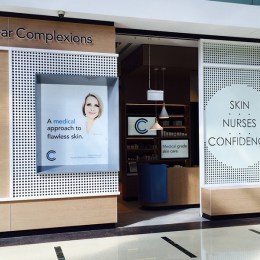As consumers continue to become more savvy about their skincare choices and are frequently on the lookout for the most active, high-efficacy options possible, we’re seeing the emergence of a new trend, steering away from water as the main ingredient. Upon initial reflection, this makes complete sense – since the skin cannot absorb water externally, why should skincare comprise mainly of water, simply to evaporate soon after application?
We decided to speak to several industry experts to gain further understanding into this brave new water-free world.
According to Lux Allure founder Carly Porter, “most skincare products you will find are made up of around 70% water, meaning only 30% are active ingredients such as hyaluronic acid and fatty acids which are great for the skin. If your skincare products are more potent with less diluted ingredients, this can guarantee healthier and less problematic skin. Water also dries the skin more than it nourishes.”
Celebrity facialist and skincare expert for OmniDerm (the distributor for Dr. Spiller Biomimetic and Herbal Aktiv Peels) Sue Dann says there are several factors contributing to the trend, predominantly environmental issues, plus the desire for less preservatives, less drying solutions, more room for other ingredients and higher concentrations of active ingredients.
“Water-free cosmetics tend to be the next level of marketing to organic products and as such are appearing on the market at the moment as the next trend,” says Sue. “Marketed as potent products because without water there is apparently more room for other ‘good’ ingredients and less ‘dangerous’ preservatives are needed. There are very little clinical studies available on this trend, so time will tell if the consumers are going to get the results they want. Maybe it is a bit too simplified!”
According to Sue, these products also come with problems of their own. “Skin has a protective barrier, the acid mantel, that is waterproof and basically only semi-permeable. Water-based products, those that have an oil in water formulation, cannot penetrate the waterproofing layer. As the water evaporates, it dehydrates the skin as the skin oils are stripped, leaving the skin feeling tight and dry.”
“The water-free theory is that, as the products do not contain water, this cannot happen. But the problems come as water-free products are balms and heavier and in themselves can cause occlusion to skin, therefore impairing its function.”
Another water-free issue relating to environment factors is the use of detergents to clean manufacturing equipment, says Sue. “The thicker balms etc. do not break down in water without using strong detergents which raises another question, what happens to the detergents afterwards?”
So what’s the solution? Sue Dann says the answer is of course, oil-based products. “The advantages are biomimetic products that mimic the skin’s own barriers, oil in water or sebum and perspiration. Research shows that this formulation uses very little water, low levels of preservation aids, excellent penetration of active ingredients and balances the skins own barrier. Because of these, you get the best of both worlds.”
According to Eminence Organics, skin type and individual needs should remain top priority when deciding on skincare delivery systems. “Different skin types require different delivery systems,” says National Sales Manager Rae Williams. “For example, an aloe-based delivery system will be very effective at driving water-soluble vitamins into the deeper layers of the skin, while simultaneously providing a soothing and calming effect for skin conditions such as rosacea, inflammation and sunburn. An oil-based delivery system could nurture severely dehydrated skin that lacks both inherent moisture and lipids. This could include skin that has been exposed to extreme pollution or other harmful environmental factors such as second-hand smoke.”
Eminence are also big believers in the countless benefits offered by thermal water, as well as coconut water.
“Spring water from Hungary is especially rich in minerals as the country contains some of the highest concentration of mineral and medicinal waters in the world,” says Rae. “The mineral concentration in Hungarian spring water contains Calcium and Magnesium, both of which naturally occur in the body. Magnesium helps to protect the skin from free radical damage and can help reduce inflammation. Calcium helps to support cell renewal, healthy hydration in the skin through balancing the lipid barrier and build the skin’s natural resistance to premature aging and fine lines through boosting antioxidant levels.”
Our experts agree that water-free is definitely here to stay as ‘the next big thing’. “Although not new (Korean manufacturers started this trend) – we do think this is here to stay,” says Carly.




